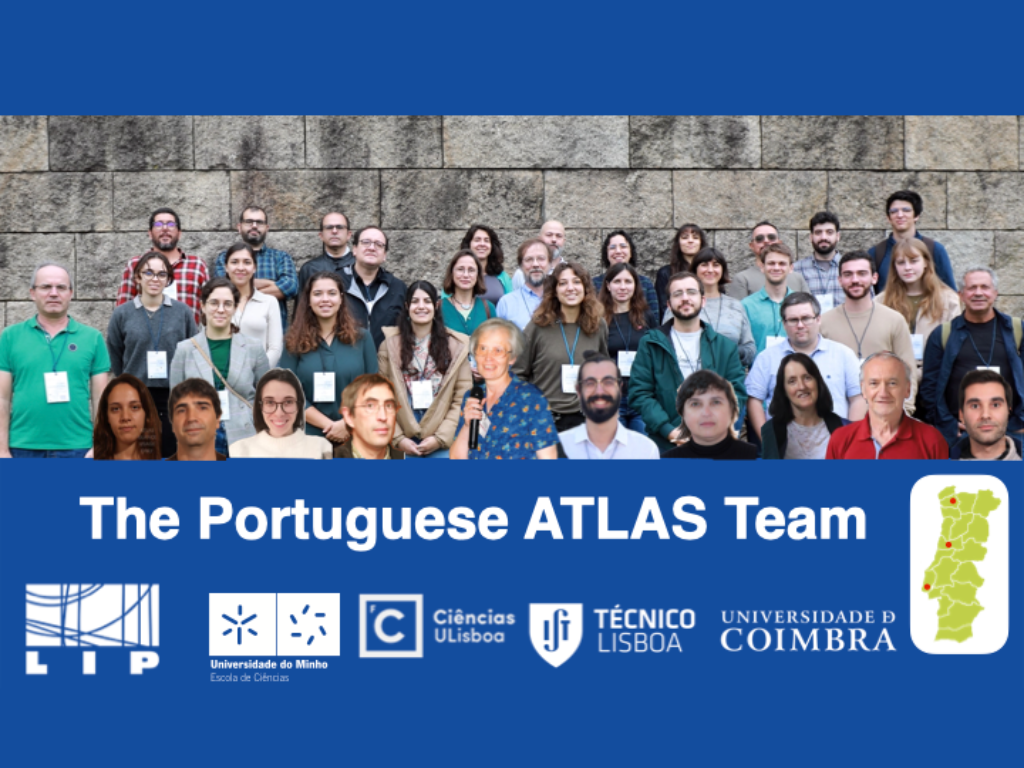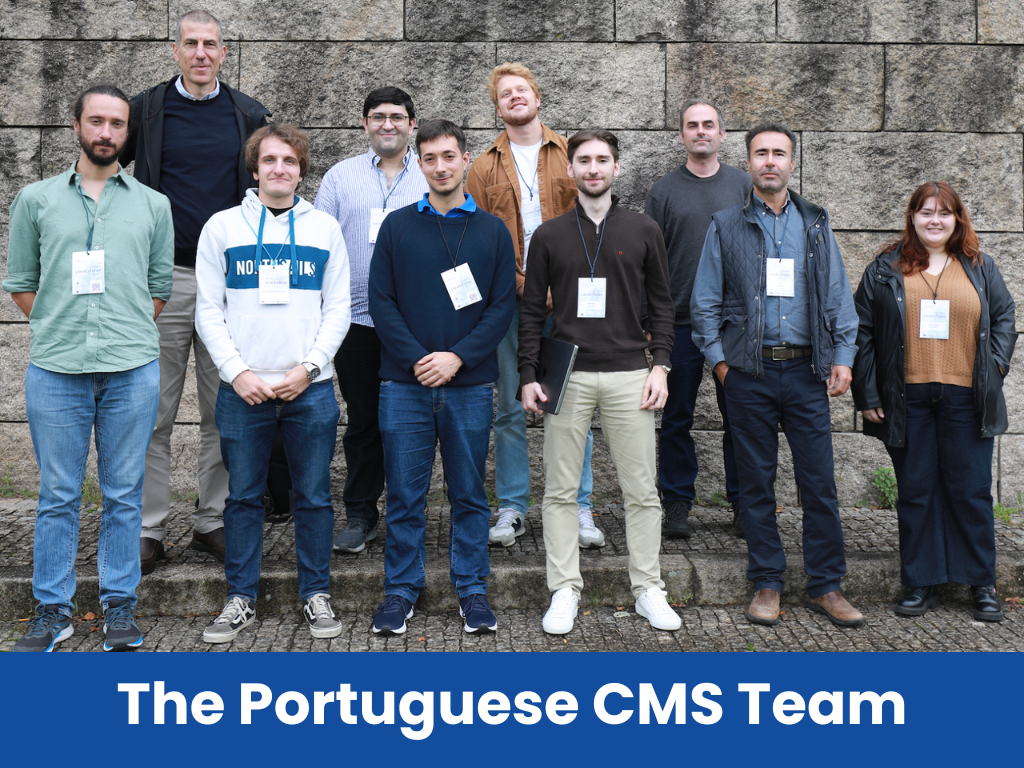LIP researchers among winners of the Breakthrough Prize in Fundamental Physics
"ATLAS and CMS teams at LIP honoured with the 2025 Breakthrough Prize for major contributions to particle physics."
Scientists from LIP (Laboratório de Instrumentação e Física Experimental de Partículas) are among the thousands of researchers worldwide honoured with the 2025 Breakthrough Prize in Fundamental Physics, awarded by the Breakthrough Prize Foundation to the ATLAS and CMS Collaborations at CERN's Large Hadron Collider (LHC) alongside their sister experiments ALICE and LHCb.


ATLAS and CMS are two of the largest and most complex scientific instruments ever built. These giant particle detectors, measuring over 40 metres in length and around 25 metres in height (ATLAS) or weighing 14,000 tons (CMS), register products of particle collisions happening at unprecedented energies at the LHC, to investigate the fundamental building blocks of matter and the forces governing our universe. They enabled discoveries like the Higgs boson, precise measurements of the Standard Model of particle physics and searches for new physics phenomena.
The Breakthrough Prize specifically highlights the ATLAS and CMS Collaborations’ significant contributions to particle physics, including detailed measurements of Higgs boson properties, studies of rare processes and matter-antimatter asymmetry, and the exploration of nature under the most extreme conditions.
This year marks the 40th anniversary of the negotiations that lead to Portugal becoming a full member of CERN. Through LIP, Portugal has been at the forefront of ATLAS and CMS research since the very beginning in 1992. The ATLAS and CMS LIP teams count on researchers and students (Master and PhD) from the main universities in Portugal (Faculdade de Ciências and Instituto Superior Técnico at the Universidade de Lisboa, Faculdades de Ciências at the Universidade de Coimbra and Universidade do Minho).
Over the years, LIP has made significant contributions to the ATLAS and CMS experiments. This included participation in the design, construction, operation, and upgrading of essential detector components, as well as involvement in physics analyses. Both teams played an important role in the discovery of the Higgs boson, conducted precision measurements of the top quark and Higgs boson, searched for rare processes, studied the quark-gluon plasma, and searched for a range of new physics hypotheses. Members of both teams held leadership positions within the collaboration.
“The Breakthrough Prize is a testament to the dedication and ingenuity of the ATLAS Collaboration and our colleagues across the LHC experiments,” said ATLAS Spokesperson Stephane Willocq. "This prize recognises the collective vision and monumental effort of thousands of ATLAS collaborators worldwide. Their talent and dedication, and the support of our public funding agencies, enabled the scientific breakthroughs that are being celebrated today. These results have transformed our understanding of the Universe at the most fundamental level.”
"CMS is deeply honoured to receive this prestigious prize,” said CMS spokesperson Gautier Hamel de Monchenault. “Through continuous innovation in exploiting the data from the Large Hadron Collider over the past fifteen years, the CMS collaboration is conducting a thorough characterisation of the Higgs boson, exploring the electroweak scale and beyond and probing the hot, dense state of nuclear matter that prevailed in the early Universe.”
“I am extremely proud to see the extraordinary accomplishments of the LHC collaborations honoured with this prestigious Prize,” said Fabiola Gianotti, Director-General of CERN. “It is a beautiful recognition of the collective efforts, dedication, competence and hard work of thousands of people from all over the world who contribute daily to pushing the boundaries of human knowledge.”
While the ATLAS and CMS Collaboration celebrate the recognition of the Breakthrough Prize, their focus remains firmly on the future. The LHC's third operation period (2022-2026) is underway, and preparations for the High-Luminosity LHC upgrade, which will increase collision rates tenfold when it begins operation in 2030, are advancing rapidly. LIP's team of physicists and engineers is deeply involved in preparing ATLAS and CMS for their next chapter. They are leading the development of key detector components, including the Precision Proton Spectrometer (PPS), the Electromagnetic Calorimeter (ECAL), and the MIP Timing Detector (MTD) at CMS, and the High Precision Timing Detector, the TileCal hadronic calorimeter and the trigger system at ATLAS.
“We are in an incredibly flourishing golden age of particle physics”, said Michele Gallinaro and Patricia Conde Muíño, current coordinators of the CMS and ATLAS LIP teams. “Extremely large datasets are available and more are arriving, innovative technologies are being used to upgrade our detectors to overcome unprecedented challenges, we have prospects to collect ten-fold data samples starting in 2030, and are currently discussing across Europe the future flagship project at CERN. We have a bright future ahead of us.”
The $3 million prize money will be transferred to the CERN & Society Foundation, as it was already done in 2013, when this prize was attributed to the leaders of these experiments for the discovery of the Higgs boson (https://breakthroughprize.org/Laureates/1/P4/Y2013). These funds will be used to provide scholarships for selected PhD students, enabling them to spend up to two years at CERN while working on their PhD thesis.
